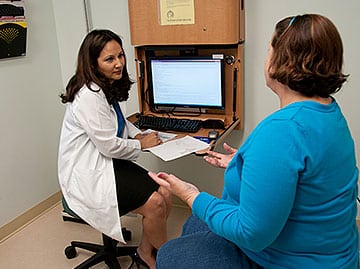UT Physicians neuropsychologists are experts dedicated to understanding the relationship between the brain and behavior. They assess cognitive and behavioral functioning and collaborate with other health care providers on designing effective treatment plans.
Patient care
Clinical neuropsychologists apply their advanced knowledge of brain-behavior relationships to assess an individual’s cognitive abilities. Areas of brain function examined include: memory, attention, language and problem solving.
Conditions evaluated
- Acquired learning disabilities
- Alzheimer’s disease
- Frontotemporal dementias/other dementias
- Parkinson’s disease and other movement disorders, including deep brain stimulation (DBS)
- Epilepsy/seizure disorders
- Head injuries/sports concussion
- Hydrocephalus
- Brain tumors
- Brain infections (encephalitis, meningitis, etc.)
- Sleep apnea and other sleep disorders
- Depression
- Strokes
- Metabolic disorders
- Exposure to pesticides and other toxic chemicals
- Heart attacks and cerebrovascular disease
- Autoimmune disorders such as multiple sclerosis
- Capacity/competency issues
- Normal pressure hydrocephalus
First appointment expectations
During the evaluation, you and a family member will be interviewed to obtain a thorough understanding of your symptoms, when they first began, and how they have progressed. The tests you will be given examine how certain systems in your brain are functioning. You will do a variety of tests to examine these functions. Some of the tests will be quite easy for you and others will be difficult. The length of testing will vary depending on several factors, but may take much of the day, with breaks as needed.
After the evaluation is complete, your health care provider will receive a report of the findings. It is also suggested that you schedule an appointment with the neuropsychologist to discuss the results and recommendations.















